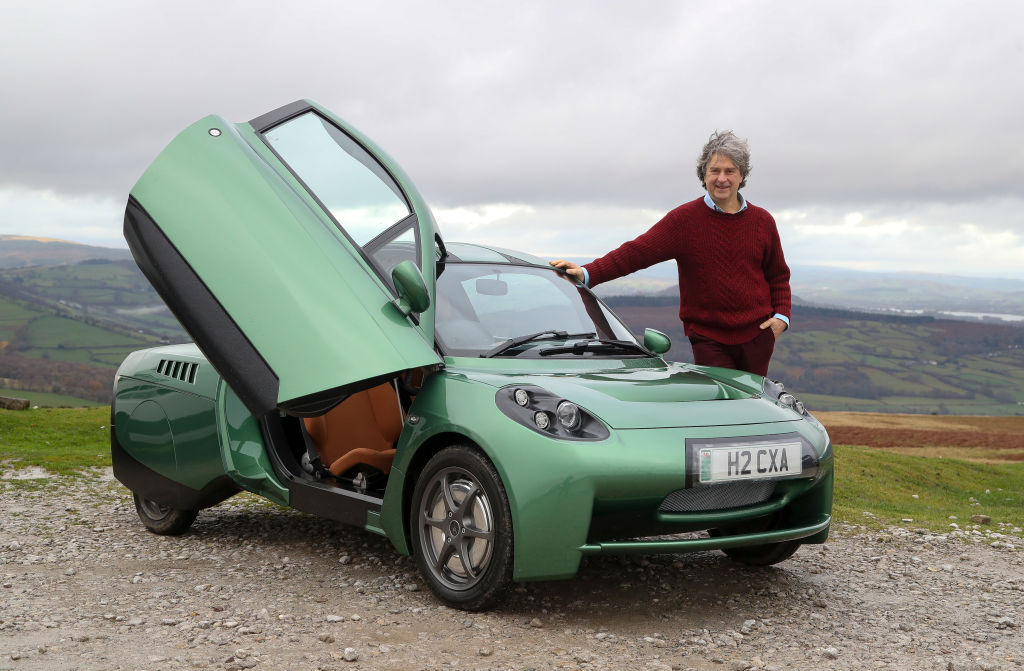
By: ShelbinMS
Hydrogen-powered car manufacturer Riversimple is hoping to steal a march on competitors ahead of Britain’s promised “green revolution” that would see petrol-powered cars banned within 10 years.
While conventional battery-powered electric cars may be a few miles ahead in the zero-emission vehicle race, the company is betting that nascent hydrogen technology will fuel the cars of the future.
South Korea’s Hyundai claims to be the current world leader, selling 5,000 units of its Nexo model in 2019, followed by the Toyota Mirai.
Their sales are dwarfed by those of battery powered cars, of which there now around five million on the world’s roads.
Riversimple is only an ambitious upstart compared with the Asian automotive giants, but is currently the only British manufacturer in the sector with its flagship model, the Rasa.
Founder Hugo Spowers is keen to take on the big boys with his self-designed model, whose name derives from the Latin ‘tabula rasa’, or clean slate.
Starting from scratch will give him an advantage, he hopes, over manufacturing giants that are focussed on adapting petrol-driven models to run on hydrogen fuel.
He also believes hydrogen has a clear advantage over electric batteries because it offers a much greater range.
“A short-range car can be brilliant running on batteries, and we need them and there’s a role for them,” he said.
“But if you want the sort of range to which we’ve become accustomed, of 300 miles (482 kilometres) or more, hydrogen is head and shoulders ahead in terms of the overall efficiency,” he added.
Rasa will begin advanced testing over the next few months, with paying customers including Monmouthshire District Council in south Wales, which has approved a hydrogen refuelling station in the town of Abergavenny.
It is the only such site in the region, but recharging takes only a few minutes, compared with several hours for an electric battery.
The cars turn hydrogen and oxygen into electricity and water, offering the advantages of electric cars — sharp acceleration, torque and quiet operation — with no pollutants emitted.
Their environmental footprint is still a problem however, with the hydrogen mainly sourced from CO2-emitting natural gas.
As electricity is increasingly made from renewable sources, there is hope this could be used to create hydrogen from water via electrolysis.
Another problem is the vehicle’s cost.
Riversimple is trying to resolve that via a hire-purchase scheme that includes maintenance and fuel costs.
The vehicle would still belong to Riversimple, giving it a stake in sustainability.
“You pay for it monthly by direct debit and everything’s all under one umbrella, which I think is fantastic,” Jane Pratt, a member of Monmouthshire County Council, told AFP.
“This is a much more sustainable method of having a car,” she added.
Spowers said he expected the total outlay to be competitive with that of a Volkswagen Golf.
“Even though the car costs us more to build, because of these long revenue streams, and because our operating costs will be lower,” the cost should even out, said Spowers, who plans to launch the Rasa in three years.
The company looks set to benefit from the British government’s goal of carbon neutrality by 2050, and specifically the goal announced a few days ago of a ban on the sale of new petrol and diesel vehicles by 2030.
British chemical giant Ineos and market leader Hyundai this week announced a partnership to develop hydrogen-fuelled vehicles and capitalise on the expected boom.
Hyundai suggested it could supply its hydrogen fuel cell technology to equip the Ineos all-terrain model Grenadier.
(AFP)
